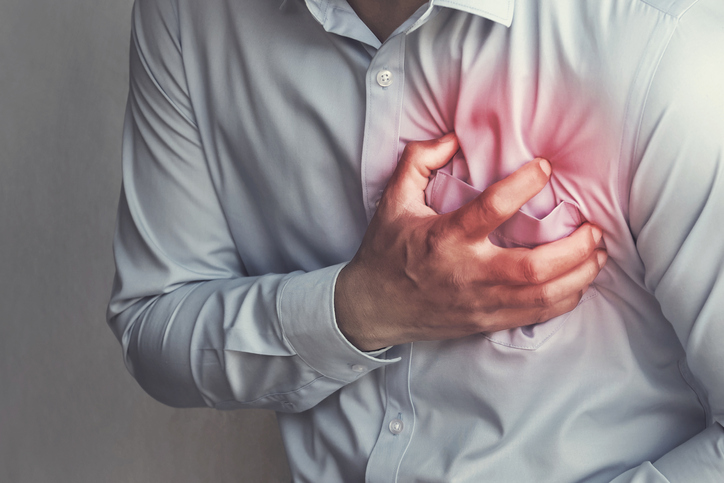Pain
Non-Cardiac Chest Pain

Any chest pain should be taken seriously. If unsure about the cause of chest pain, seek emergency medical assistance. Millions of people visit an emergency department each year with signs of chest pain. It is a frightening situation, especially if a person experienced heart issues in the past. However, not all chest pain is related to the heart. For example, chest pain may be caused from issues with the esophagus, ribs, muscles, lungs, nerves, etc.
Non-cardiac chest pain
The cause of unexplained chest pain should be evaluated by a health care professional. The three common types of chest pain that may not be related to heart issues include general chest discomfort, momentary chest discomfort, and pinpoint chest discomfort.
General chest discomfort that lessens with movement
Discomfort in the chest that stops hurting when an individual begins moving or exercising is likely nothing to worry about. If chest pain worsens with movement, walking or exercise, seek immediate emergency care. General chest discomfort may include, but is not limited to, the following:
- Acid reflux, heartburn or gastroesophageal reflux disease (GERD)
- Gastrointestinal issues
- Anxiety or panic attack
- Hiatal hernia
Momentary chest discomfort
Although alarming, momentary chest pain may not be serious. Momentary chest discomfort is usually short and swift. It may be a shock-like pain that lasts for several minutes and could indicate an injury or inflammation. Examples of momentary chest discomfort include, but are not limited to, the following:
- Broken or bruised rib
- Inflammation of a rib cartilage
- Pulled muscle in the chest area
- Fibromyalgia
- Shingles
Pinpoint chest discomfort
Chest pain that worsens when changing positions or breathing deeply could signify lung problems, such as inflammation. Pinpoint chest discomfort may not indicate a heart attack; however, they are serious and require treatment from a medical professional. Possible causes of pinpoint chest pain include, but are not limited to, the following:
- Pneumonia
- Pleurisy (inflammation in the lungs)
- Blood clots in the lung
- Asthma
When to be concerned
Seek immediate emergency medical attention for certain symptoms that occur and last at least five minutes. They include, but are not limited to, the following:
- Shortness of breath
- Cold sweat
- Extreme pain in the center of the chest
- Heavy pressure in the chest area
- Unexplainable pain in the arm(s), back, jaw, neck or stomach
- Nausea
- Fatigue
- Lightheadedness





